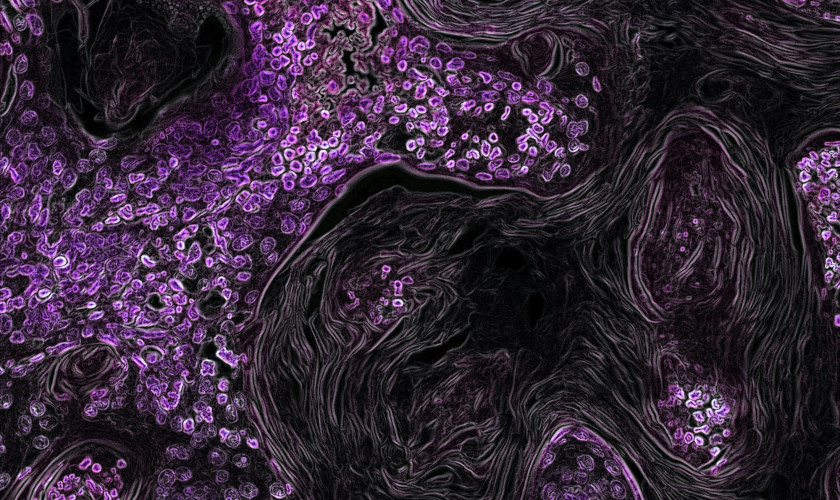However this fascinating process is unexpectedly complex and we aim at elucidating the details of this process using synthetic biomimetics, which has all the characteristics of natural membrane fusion; targeted docking resulting in efficient lipid and content mixing. Our synthetic fusion system is composed of a complementary pair of lipidated peptides able to form a heterodimeric coiled coil motif at the membrane interface. Recently we achieved fusion between liposomes and live cells for the delivery of drugs. Currently we are redesigning our fusion system such that it will be able to fuse live cells with each other as a tool to create hybrid cells. For this we design stapled peptides and peptide oligomers using synthetic approaches. Membrane fusion will be studied using biophysical and biochemical techniques with a special focus on peptide-peptide and peptide-lipid interactions. Furthermore, in-vitro membrane fusion between liposomes and live cells will be studied using optimized biomimetic model systems.
The goal of this project is to achieve targeted fusion of liposomes with specific cells/tissue in zebrafish embryos, as a first significant step towards clinical applications. Studying our membrane fusion system in zebrafish will yield valuable insights in the mechanism of targeted drug delivery and when successful, applications are foreseen in drug delivery, controlling and/or modifying biological processes in vivo. For this exciting interdisciplinary research project we collaborate with renowned experts in chemical biology, biology, chemistry and biophysics. For this project we are looking for motivated students who would like to work on one or more of the following topics:
- Peptide synthesis
- Supramolecular chemistry of lipopeptides
- membrane fusion studies in cell cultures
- in vivo membrane fusion experiments using zebrafish
- Peptide-membrane interactions
- Number of placements available: 2 per semester.
- Minimum period of participation: at least 3 months (preferably longer).
Prerequisites
- High level undergraduate student.
- Minimum GPA 3.4
- BSc degree in Chemical Biology, Chemistry, Biology or in a closely related field.
Faculty Department
Faculty of Science / Leiden Institute of Chemistry
Several positions are available in the research team of Dr. Alexander Kros working on membrane fusion. The project - funded by a NWO-VICI grant - is aimed at to design a biomimetic model system able to induce for the first time in-vivo membrane fusion and study its mechanism. In vivo targeted delivery of therapeutics is one of the unsolved grand challenges in medicine resulting in serious side effects resulting in loss of therapy efficacy. We believe that targeted membrane fusion is the way to go to solve this long-standing problem in medicine.
Fusion of lipid bilayers in cells facilitates the active transport of chemicals. Inspired by SNARE-mediated fusion, we are developing a synthetic model system able to induce fusion in vivo. The model system consists of a complementary pair of lipidated peptides able to form a heterodimeric coiled coil motif at the membrane interface similar to natural fusion proteins. Recently, membrane fusion between liposomes and live cells was achieved using optimized model systems. It was shown that efficient and targeted liposome transport directly into the cytoplasm of cells was achieved, while circumventing endocytotic pathways.

